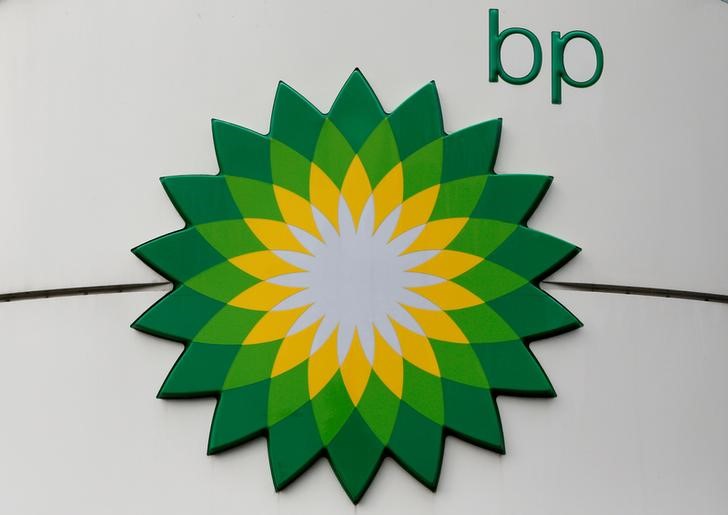By Dmitry Zhdannikov, Julia Payne and Amanda Cooper
LONDON (Reuters) - Oil major BP (L:BP) has clashed with rival Vitol in the once-languid West African crude market, buying up cargoes and taking a big derivative position that may have raised costs for European refiners.
The West African crude market typically sees cargoes of Nigerian and Angolan change hands in back-to-back deals outside the Platts window, a system widely used by the industry to price crude. Pricing agency Platts sets key oil benchmarks for the market.
New trading opportunities arose from August, when broker Sunrise started the first derivative for Nigeria's four largest crude oil grades - Bonny Light, Forcados, Qua Iboe and Bonga - mirroring derivatives trading in the North Sea.
The derivatives, known as contracts for differences (CFDs), allow traders to bet on whether premiums of the four Nigerian grades versus the Brent benchmark will rise or fall.
The CFDs can be used to hedge against price fluctuations during the voyage of a physical cargo to a consumer, which can take weeks. But CFDs can also be used to take a speculative position.
According to five traders familiar with the developments, who asked not to be named because they are not allowed to speak to the media, BP quietly built a long position of up to 10 million barrels in the African CFDs contracts in August, betting the premium of the grades to Brent will rise in September.
BP declined to comment.
Against BP in the paper market were six trading desks, including trading giant Vitol, which took the opposite side of the bet and went short CFDs, betting that African grades' premiums to Brent would fall, according to trading sources.
The paper deals were done on a back-to-back basis with only BP, Vitol and five other companies aware of the developments.
CLASH WITH VITOL
The trades took place in what has long been a regulatory grey area. London's Financial Conduct Authority, which does not regulate London trading in the West African crude market, but does oversee the UK Brent crude benchmark, declined to comment.
BP does not produce oil in Nigeria and has not been a large trader of Nigerian oil in recent years, although it has bought some cargoes for its refining system.
After quietly building its paper position in August, BP launched a flurry of bids on the Platts system in September for physical cargoes of Nigerian oil.
BP bid for a total of 22 Nigerian cargoes loading between Sept 3-12, a previously unseen volume of purchases in the West African crude market, where a whole month can sometimes go without a single public bid or offer in the Platts window.
BP's bidding activity ushered premiums of the African grades against the Brent benchmark to as high as $1.70 per barrel compared to a premium of $1.20 a barrel in August, when BP was building its CFDs position.
A difference of 50 cents per barrel would in theory bring a profit of $5 million on a 10-million-barrel CFD position.
The rise in premiums in the physical market made BP a big winner on its long position on the CFDs trade, while Vitol was a loser, according to traders.
In reaction, Vitol spent over $500 million to buy seven cargoes outside the Platts system from oil majors Total (PA:TOTF) and Shell (LON:RDSa)
The trading house then re-sold the cargoes on the Platts system to BP at premiums ranging between $1.55-$1.75 per barrel, effectively accepting a loss on the physical trade but limiting its losses on the CFD side.
"Tensions were running huge between BP and Vitol. It was a high stakes game," said a trader familiar with the development.
Vitol declined to comment on the story.
Market participants said the main losers from the developments in the West African market will be refiners.
Nigerian state oil firm NNPC sets its monthly official selling prices (OSP) to long-term crude buyers, mainly refiners, retroactively and based on prices in the Platts system.
"This is very bad from a refiners' perspective. Every seller is now asking high prices and when they show a cargo, all they say is: "If you don't buy, we'll just sell to BP," said a source with a European refiner.
